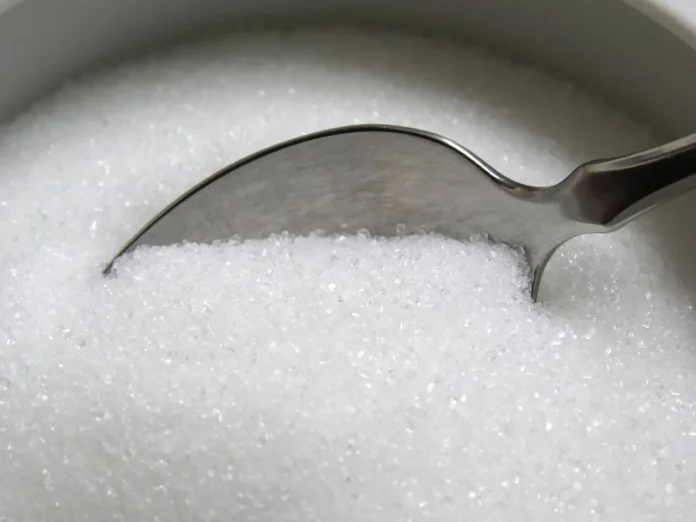New research suggests that high sugar consumption may have an impact on testosterone levels for up to two hours after ingestion. Dr. Bhavna Banga, Clinical Director of Reproductive Medicine and IVF at Cloudnine Group of Hospitals in Noida and Kailash Colony, sheds light on this concerning possibility.
According to Dr. Banga, consuming excessive amounts of sugar can lead to insulin resistance, a condition where cells become less responsive to insulin. Insulin resistance can disrupt the body’s hormonal balance, potentially affecting testosterone levels. Testosterone, a hormone primarily produced in the testicles, plays a crucial role in male reproductive health, influencing muscle mass, bone density, and libido.
The study underlines the importance of dietary choices in maintaining hormonal balance and overall health. While occasional indulgence in sugary treats may not have a significant impact, habitual consumption of high-sugar foods and beverages could contribute to long-term health complications.
Dr. Banga recommends adopting a balanced diet rich in nutrients and low in added sugars to support optimal hormonal function. This includes incorporating plenty of fruits, vegetables, lean proteins, and whole grains into one’s meals while limiting the intake of sugary snacks and drinks.
Furthermore, she emphasizes the significance of regular exercise in managing insulin sensitivity and promoting overall well-being. Physical activity not only helps regulate blood sugar levels but also aids in maintaining a healthy weight and reducing the risk of chronic diseases associated with insulin resistance.
In addition to dietary and lifestyle modifications, individuals concerned about their testosterone levels should consult with a healthcare professional for personalized advice and appropriate management strategies. Monitoring hormone levels through routine blood tests can provide valuable insights into one’s health status and guide targeted interventions if necessary.
Research into the effects of sugar consumption on testosterone levels is ongoing, with studies exploring various aspects of this complex relationship. While some research suggests a potential link between high sugar intake and hormonal imbalance, more evidence is needed to fully understand the mechanisms involved.
One factor to consider is the role of insulin in regulating testosterone levels. Insulin is a hormone produced by the pancreas that helps regulate blood sugar levels by facilitating the uptake of glucose into cells. When insulin resistance occurs, the body’s cells become less responsive to insulin, leading to elevated blood sugar levels and increased insulin production.
Insulin resistance is commonly associated with obesity, metabolic syndrome, and type 2 diabetes, conditions that have been linked to alterations in testosterone levels. High levels of insulin in the bloodstream can inhibit the production of sex hormone-binding globulin (SHBG), a protein that binds to testosterone and regulates its availability in the body.
Additionally, excess sugar consumption may contribute to inflammation and oxidative stress, which can further disrupt hormonal balance and impair testosterone production. Chronic inflammation and oxidative stress have been implicated in various health conditions, including cardiovascular disease, cancer, and infertility.
Furthermore, high sugar intake may indirectly affect testosterone levels by promoting weight gain and adiposity. Excess body fat, particularly visceral fat stored around the abdomen, is associated with lower testosterone levels and reduced testosterone production. Adipose tissue, or fat cells, contains an enzyme called aromatase that converts testosterone into estrogen, potentially further exacerbating hormonal imbalances.
While the impact of sugar consumption on testosterone levels remains a topic of debate, there is consensus among health experts about the importance of moderation and balance in dietary choices. Adopting a diet rich in whole foods, including fruits, vegetables, lean proteins, and healthy fats, while minimizing the consumption of processed and sugary foods, is recommended for overall health and well-being.
In addition to dietary modifications, regular physical activity and stress management techniques can also support hormonal balance and optimize testosterone levels. Exercise, particularly resistance training and high-intensity interval training (HIIT), has been shown to increase testosterone levels and improve insulin sensitivity.
Overall, while the occasional indulgence in sugary treats may not have a significant impact on testosterone levels, excessive sugar consumption as part of a consistently poor diet and lifestyle may contribute to hormonal imbalances and associated health issues. By prioritizing nutrient-dense foods, maintaining a healthy weight, and adopting a balanced lifestyle, individuals can support optimal hormonal function and overall well-being.

